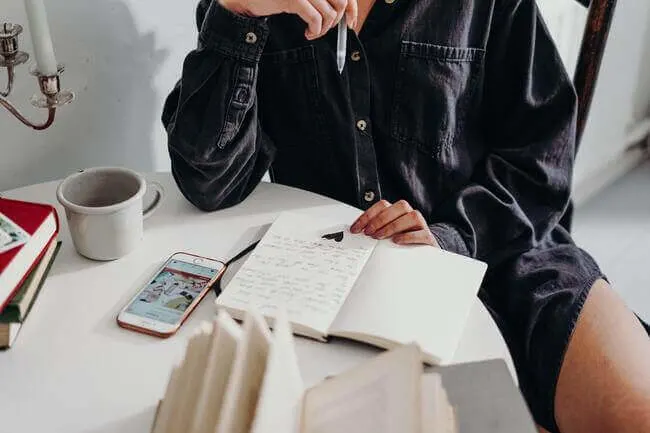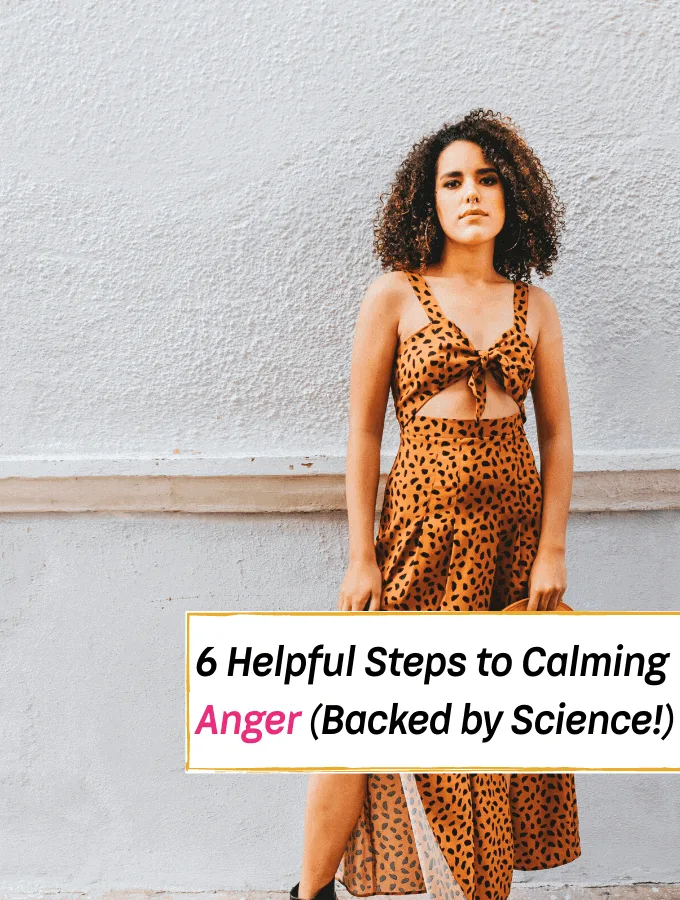If you are looking for a few insights about empathy, these tips will guide you towards developing more empathy for others!

- {this article was submitted by Moiz from lesocialpost. For a chance to be a guest author click here!}
The Basic Misconception.
Empathy, more than anything is a state of mind. A whole new way of looking at other people. By this new way of looking, I mean taking a genuine interest in people, trying to know their perspective, and actually get into their minds.
However, the greatest difficulty in adopting this new attitude is our assumption that “WE ALREADY KNOW PEOPLE”. We think we understand people and can quickly categorize them.
Quite the contrary, as the first step in your journey to becoming more empathic, you should humbly accept the fact that you don’t actually know people.
We only “judge” people according to our own biases. We never really try to understand the other person’s perspective. We never really take any interest in what they might be thinking.
For example, if two women see a man crying, one might take it as a sign of sensitivity while the other one would probably think the man is weak.
Both women have interpreted the event according to their own biases without considering the actual situation of the person involved.
Therefore you must, at all costs, get rid of your tendency to make snap judgments.
Here are four powerful insights to be more empathic.
Similar Reads:
See Also:
Are you curious to see what takes to tackle your bad habits? Check out these 11 Ways to Break Bad Habits That You Haven’t Tried Yet!
How to Be A More Empathic Person

1. Be more Interested in People.
Now once we have established that in order to start your journey towards empathy, you have to be genuinely interested in people. But you cannot take a genuine interest in people unless you are motivated to do so.
So how do we do that? To motivate yourself you should bring an important shift in your worldview. We are naturally attracted towards the unknown, as it stirs our curiosity.
Think of it this way. You only see a person’s body but you are totally unaware of what’s going on in their head, their deepest desires, motivations, and values. How fascinating a journey would it be to venture into someone’s mind?
How fascinating a journey would it be to venture into someone’s mind?
From now on, you should think of every person as an unknown world, with a fascinating psychological topography that you have to explore.
You are ready for every surprise and welcome it with the enthusiasm of an explorer. You don’t judge anything, you are only collecting information to understand how many different things are possible in the world.

Here I would like to share one of my own personal experiences.
For me, the biggest enlightening revelation was, when after several years of studying history, I realized that in this world, you can just expect almost anything from a human being.
After that, nothing good or bad coming from any individual gave me any shock or surprise. This has made me a lot more tolerant of other people than I used to be before.
Traveling to different cultures is also a good way to develop such a mindset, as when you see so many people living and thriving in so many different situations, you are convinced of the great adaptive potential of humans and develop a truly global, all accepting soul.
Such an open and flexible spirit is like having creative energy, a willingness to consider wider possibilities and options. In fact, practicing empathy is very helpful for your creative instincts.
2. Stop the Internal Monologue.

Once you have developed the mind of an explorer you need to start acting. The first step would be to change your daily conversations. Normally, during a conversation we are not listening to the person we are talking to, instead, we are working in our minds on our reply or the next great story we are going to tell.
But to be more empathic you have to know other people and it’s impossible unless you “listen to them attentively”.
So during a conversation, you must turn your internal monologue off. This is only possible if you have decided to be curious about the person and use his words, and body language as a window to his mind.
Just think of it this way. You know yourself all too well and your thoughts normally revolve around the same old themes each day.
You know yourself all too well and your thoughts normally revolve around the same old themes each day.
When with someone else you can direct your attention towards that person because you can have your monologue some other time when you are alone, but this person is here only for now.
What matters here is the quality of listening, so that in the course of the conversation you can mirror back the things they said, or things they left unsaid but you sensed. This kind of connection has an amazing seductive effect.
What you are essentially doing here is that you are lowering the level of your self-absorption and getting indulged in other people.
You have the same level of interest in others as you have in yourself. Believe me, empathy is impossible if you are deeply self-absorbed.
For example, if we make a mistake, we blame circumstances or other people for that, essentially everything other than ourselves. But when it comes to other people we do the opposite.
So while learning to be more empathic you must consider the circumstances first that made a person do what he did. You must know that the greatest hurdle in taking a genuine interest in people is your level of self-absorption.
You must know that the greatest hurdle in taking a genuine interest in people is your level of self-absorption.
If you are deeply self-absorbed or have insecurities, your moments of empathy will be shallow.
Therefore to get rid of your insecurities and fears, you must first need to accept yourself as it is, with all its flaws and shortcomings. You are not an angel and can laugh at your weaknesses. Armed with this inner strength and resilience you can take a genuine interest in others.
3. Don’t Decide on Poor Evidence.

Have you ever wondered why you connect with your close friends and family at such a deep level?
Well, a big reason is that you have gathered a whole lot of information over the years about their likes and dislikes, their tastes and values.
This information helps us understand them better and connect more deeply. If they do something we don’t like, we can understand it’s their weakness and they just cannot help it.
We all have experienced this in our lives. We come across a person and think we have him/her figured out. As time passes and we get to know more about them, we see a totally different person than we had imagined. This leads us to adjust our original impressions.
Therefore, the next step in your empathy journey would be to understand that you should not judge people based on your initial observations.
You should not judge people based on your initial observations.

This principle is even more important… When it comes to people whom we feel repellant or resistant and have a hard time connecting with and also for people who belong to a different culture than ours.
Normally in these cases, we quickly relieve ourselves by making a snap judgment about that person or sometimes even a whole group of people. But you must know you are deciding on limited evidence.
In most of these cases, when a person seems hard to figure out, you should take it as a challenge and an excellent way to sharpen your people skills. It will be like a practice for you.
Remind of yourself of a quote from the great Abraham Lincoln… “I don’t like that man, I must get to know him better”.
Why don’t you think of yourself as a student of human nature?
This way each and every person would be like a precious specimen for you to study and explore. Just as a botanist loves and cares about his specimens, you should also love and care about them. Every person, no matter how different and difficult has volumes to tell you about human nature.
Every person, no matter how different and difficult has volumes to tell you about human nature.
Similarly, you should acquaint yourself with the art of various cultures as art is universal and touches us at a mysteriously deep level.
As you do, you’ll know the common bonds and emotions that all humans experience and appreciate irrespective of their culture. Believe me, this can lift your soul up to a whole new level where you genuinely become one with the whole of humanity.
As for any individual, the best way to know a person would be through conversation and gathering more and more information that will allow you to enter their spirits.
While trying to know them, you should focus first on their core values. Most of us develop our values in our childhood and adolescence and most often these come from our parents and society. In these years we develop concepts about what we think is good, bad, strong, weak, generous, cheap, etc.
Remember the example of the two women above. Each of them decided about the crying man according to their own concepts of strength and weakness. What was lacking was the perspective of the man involved. If they had asked him he would have come up with a fairly good explanation of his behavior.
Therefore, if we don’t understand people’s values at a deep level and keep on projecting our own onto them, we will always misread their reactions and behavior and get involved in useless conflicts.
Your goal is to know what makes them unique.
4. Keep Track of Your Progress.

As you are trying to be more empathic, you need to make sure that you are making progress and improving your skills to better understand people.
If you are making progress, people will inevitably be attracted to you and you’ll see their behavior and body language changing.
You can test that in various ways. Like you can first guess about people’s thoughts and ideas after initial contact and then ask them, later on, to check whether you guessed right.
Secondly, you can focus on how their body language and tone of voice have changed with you after you started your empathic exercises.
Thirdly, notice how they behave with other people as compared to you. The most important thing, in this case, is to interact with as many people as you can, and that interaction should be in person. The more people you meet, the more your empathic skills will be polished.
The more people you meet, the more your empathic skills will be polished.
Another thing to keep in mind is that you should try to interact with as many different people as you can, to make your abilities more versatile and increase your knowledge.
As you practice these things more, you will see results and the effect that you have on people, which will, in turn, will motivate you to continue with this.
You will notice your life becoming more and more smooth as you avoid so many unnecessary conflicts.
About the Author: Moiz is the writer and owner of the blog lesocialpost.com. He has always been passionate about history and psychology. His utmost effort is to distill timeless principles about self-development from ancient and modern streams of knowledge. He is passionate about contributing to society, bringing peace and harmony for his readers. Seeing success with satisfaction is his primary goal for his readers.
See Also:
Check out, 6 Helpful Steps to Calming Anger (Backed by Science!), next!
You may also like:
Author: Everything Abode
Welcome to Everything Abode, your daily inspiration for every activity at home!
Our goal is to inspire you to live an elegant and chic lifestyle from the comfort of your home.
We’ll help you express yourself through authentic style, aesthetic beauty, and stylish home decor.
Subscribe to Get the Tools That Make My Blog Successful!

When you join my newsletter, I'm going to send you insider advice and tools that I use to grow my blog! I only save the BEST for my email list so don't wait!



